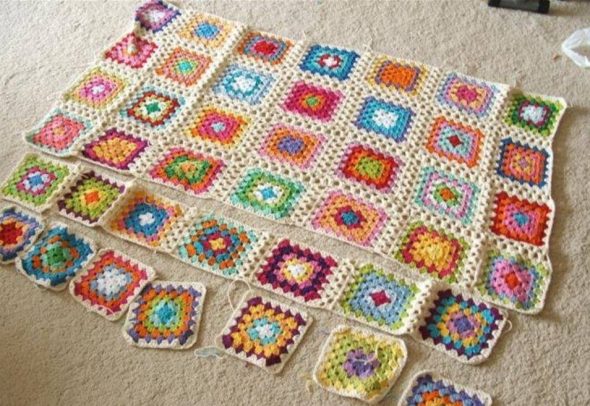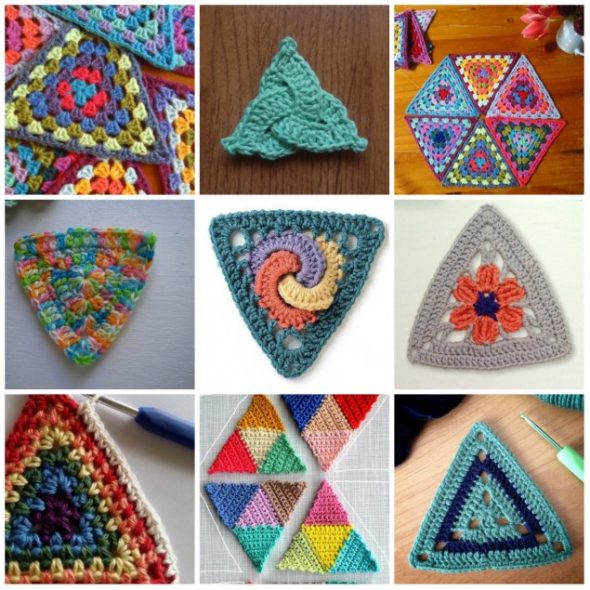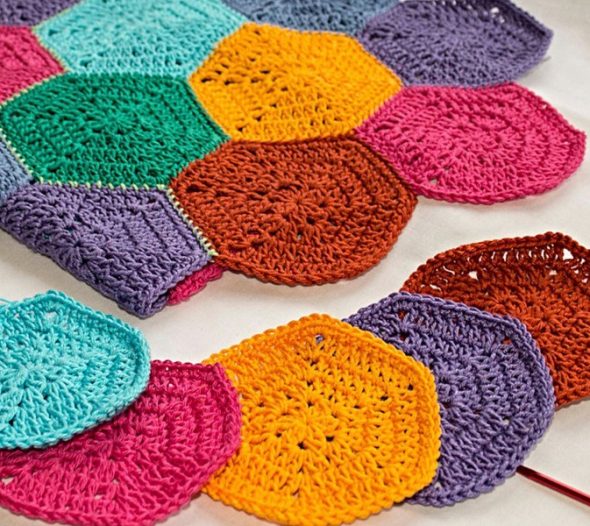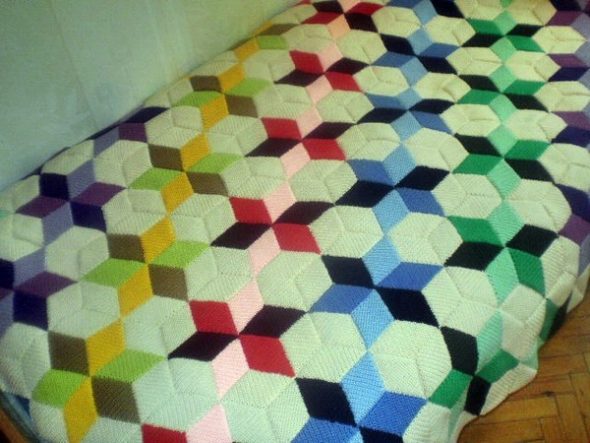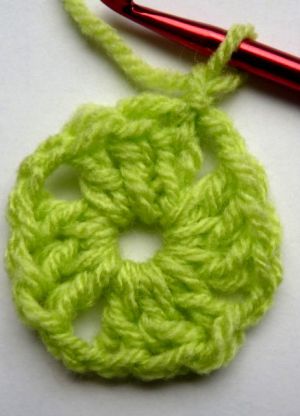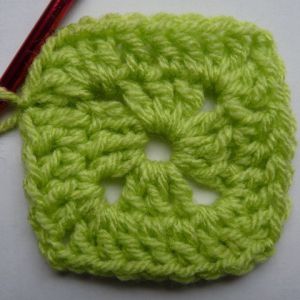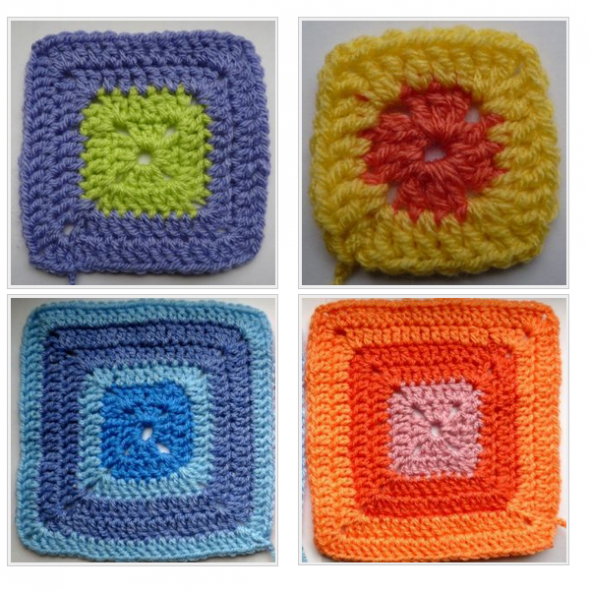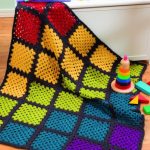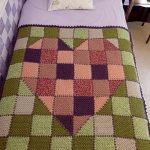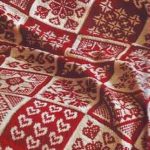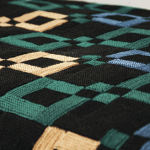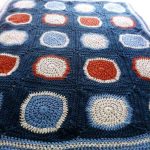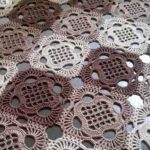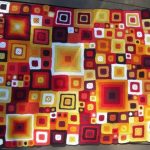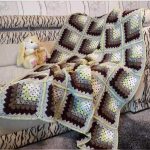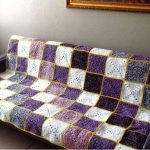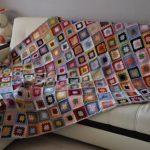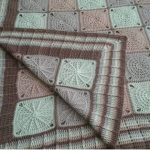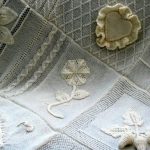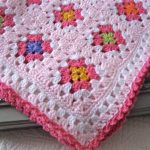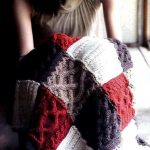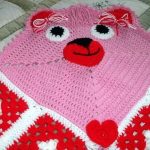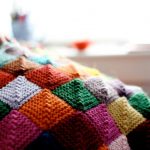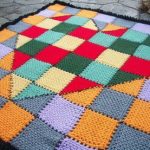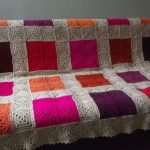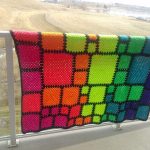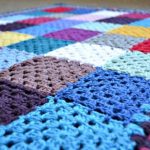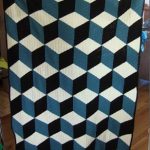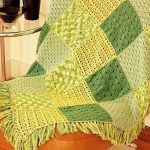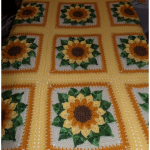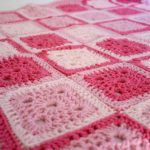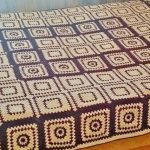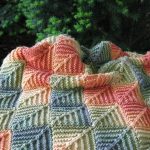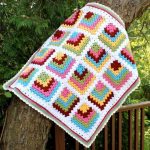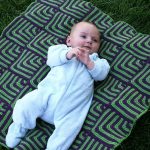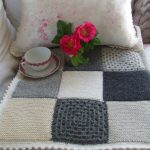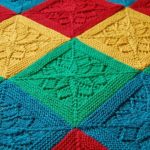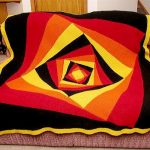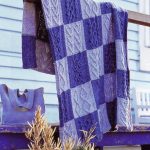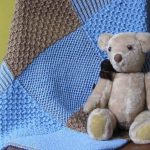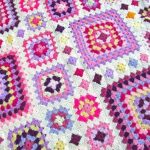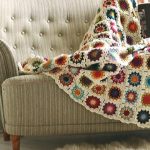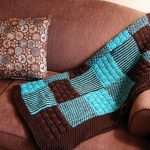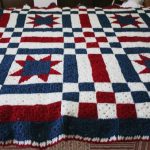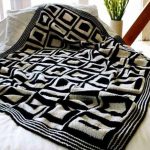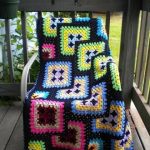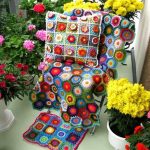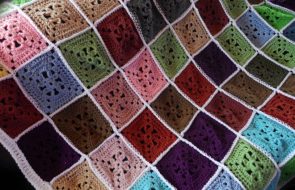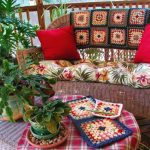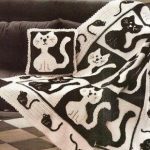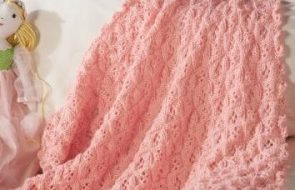A patchwork yarn blanket is a piece of fabric, like a mosaic, assembled from multi-colored knitted scraps. Such products usually turn out beautiful and unusual.
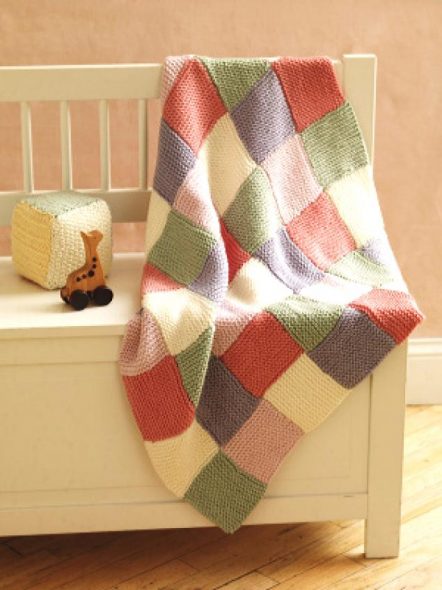
There are different knitting techniques, more complex and extremely simple. Here we will get acquainted with the most common options for creating knitted patchwork blankets.
Content
- What yarn to use?
- Tools for knitted patchwork
- Basic techniques for knitting a patchwork blanket
- Patchwork knitting: a blanket knitted with simple squares from the corner
- Triangle patchwork blanket
- A bedspread made from squares knitted in a spiral
- Crochet Blankets: Square from the Corner with Double Yarns
- How to Knit a Traditional Granny Square
- Simple and stylish pattern: blanket knitted in reverse rows
- Patchwork baby blanket
- Combined patchwork
- Video: Plaid Rhombuses
- 50 photo ideas for inspiration and creation of beautiful and unusual blankets with knitting needles and crochet:
What yarn to use?
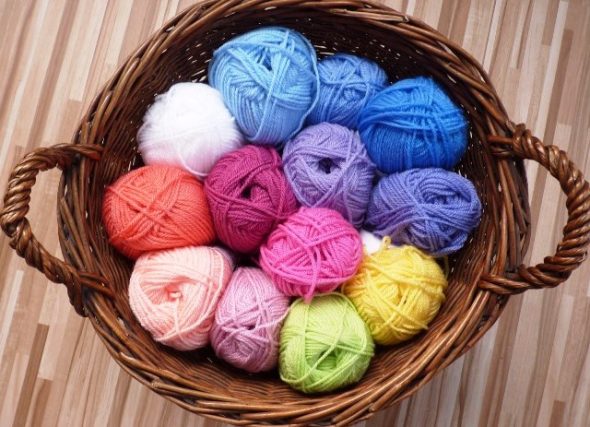
This type of work begins with the selection of the source material - yarn. Traditionally, for this type of handicraft, threads left over from knitting other things are used. But you can select and buy something specifically for a patchwork bedspread.
Important! The product must be completely knitted from yarn of the same thickness. The pattern, the size of the constituent pieces, the color, the composition of the threads may differ. But not the knitting density.
Tools for knitted patchwork
Preparing the tools is another important part that precedes the main work. You will need the following.
- Hook
Even if you plan to use knitting needles, this tool can be useful for casting on a row of air loops in advance. Its type depends on the parameters of the yarn.
- Spokes
For different techniques, 2 to 5 double-pointed knitting needles can be used at the same time. A larger number is rarely needed for such items.
- Pins
Safety pins or regular tailor's pins may be useful.
- Scissors
To cut the thread if necessary.
- Needle
It will be needed for some knitting methods, when separate fragments are first created. And only then are they connected into a single piece.
Once you have made sure you have everything you need, you can begin working.
Basic techniques for knitting a patchwork blanket
Patchwork is a combination of simple geometric shapes. Most often these are:
- squares;
Crochet squares for a patchwork blanket - triangles;
Simple crochet triangles are a great motif for collecting interesting items. - hexagons;
Common motifs are hexagons for simple and complex items - rhombuses.
The crocheted rhombus blanket-bedspread looks original and voluminous
These component pieces are called motifs. They are created with knitting needles or a crochet hook, using different patterns, from the corner or from the center. There are many options. The table shows the most basic techniques.
| spokes | hook | |
|
| from the corner |
|
| from the center |
According to the method of joining the pieces together, all techniques are divided into the following.
- They are knitted as one piece
Having completed one motif, in this situation they immediately move on to the next one, knitting them in a row. In order for the blanket sewn in this way to turn out successful, it is better to draw a sketch diagram before starting the main actions and knit in accordance with it.
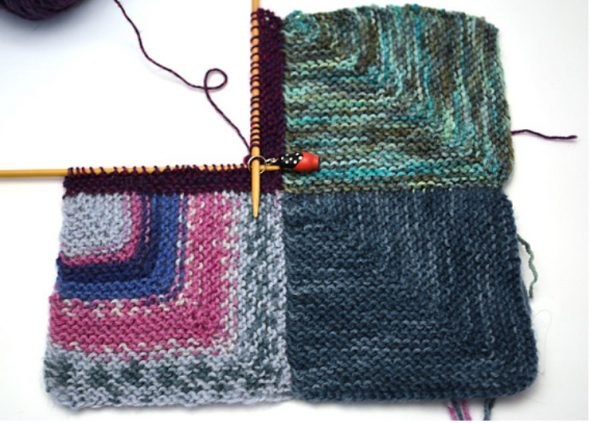
- Like a mosaic
That is, first you need to make individual elements, and only then put them together and connect them.
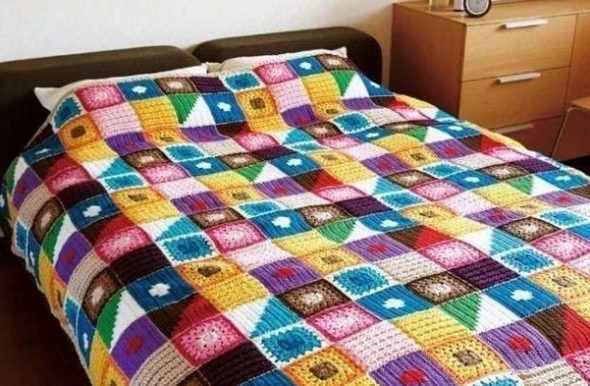
Both methods have their advantages and disadvantages. Knitting using the first method does not require additional stitching with a needle, but does not allow significant adjustments to the pattern as you work. The second is more labor-intensive, but allows you to experiment right in the process of creating a blanket.
Patchwork knitting: a blanket knitted with simple squares from the corner
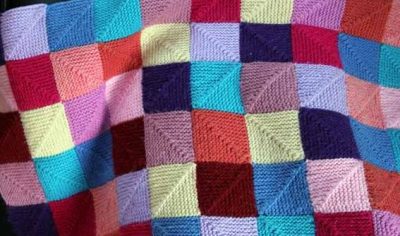
The most common method of creating a patchwork blanket with knitting needles is the so-called garter stitch. It is a combination of knit stitches and decreases. The process is as follows.
- Cast on an odd number of stitches for the base
Their exact number depends on the size of the square. And is equal to the sum of the loops horizontally and vertically, plus one corner loop.
- Knit the motif with face stitches
In the process, on every second row, decrease three loops in the middle.
- Form the outer edge of the motif using knots.
That is, always remove the first loop of the row without knitting it.
- Complete the square
When, as a result of constant decreasing, only one loop remains in the row, cut and fasten the thread.
- Start the next motive
The basis for it will be one of the sides of the already connected fragment and a row of cast-on loops.
Thus, step by step, a whole canvas of yarn is created. It is important not to change the knitting direction during the process, so that the protruding convex diagonals on the front side of the blanket, obtained in the process, are directed in one direction.
Triangle patchwork blanket
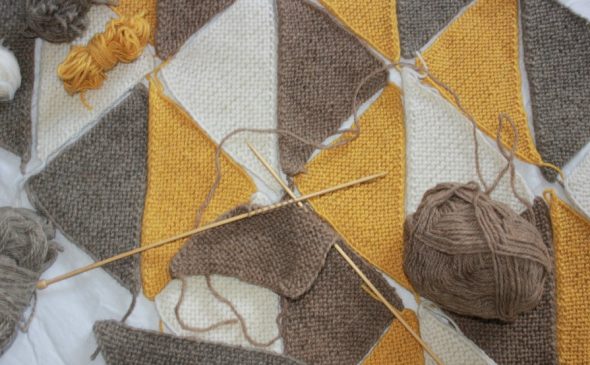
Textiles made of triangles look impressive and are easy to knit. To do this:
- Cast on a chain of six stitches;
- Close it into a ring with a half-column without a crochet;
- Insert a double-pointed needle into every two stitches to form a base for the sides of the future triangle;
- Next row, double the number of stitches;
- Work a simple stockinette stitch, adding two stitches to each edge of the triangle in each row until the piece reaches the desired size.
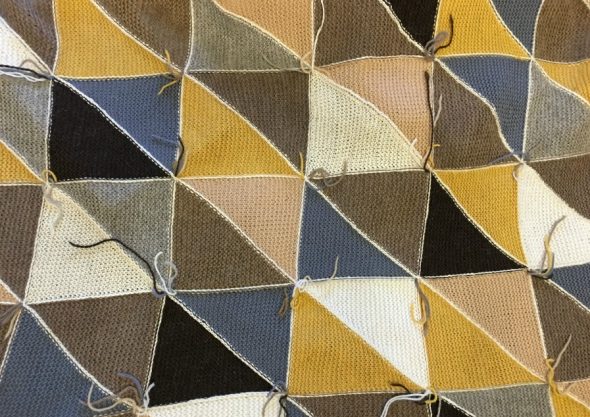
This simple, unusual and attractive motif can become the basis for an excellent knitted blanket.
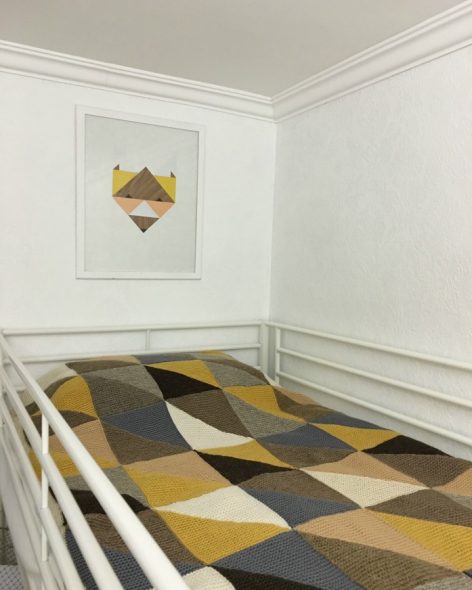
A bedspread made from squares knitted in a spiral
This type of patchwork with knitting needles is very similar to the previous technique in execution. The creation of this motif also begins with knitting a chain of air loops - however, in this case there should be eight of them. Then the loops are closed in a ring in the same way and distributed over the knitting needles, forming the edges of the square.
After this, the element is knitted with a face pattern, each subsequent row should be started with a yarn over, thereby increasing the number of loops. Continue knitting until the fragment reaches the desired size.
The element obtained in this way has convex spiral arcs on its front surface, diverging from the center in four directions. Visually, this looks quite interesting.
Crochet Blankets: Square from the Corner with Double Yarns
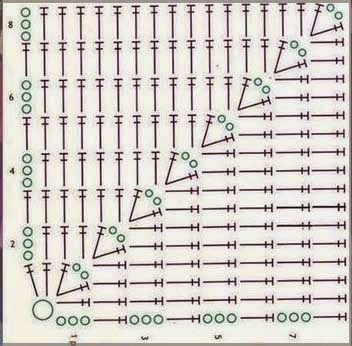
This alternative to the simplest patchwork with knitting needles in the form of squares looks similar, but it is knitted a little differently. The main difference is that you do not need to cast on a chain of loops at first, but make one single loop.
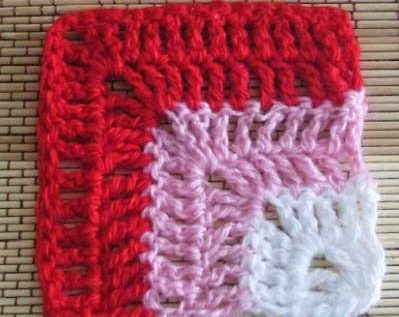
From it, first knit three double crochets, then two chain stitches, then two more double crochets. Do the second row in the same way as the first, but include two more double crochets. Continue knitting until the figure reaches the planned dimensions.
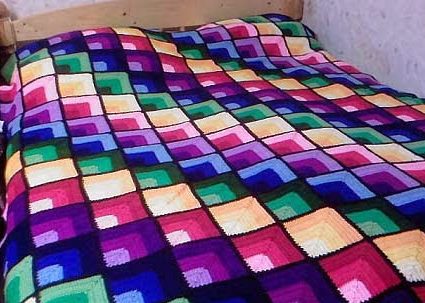
This method of patchwork knitting turns out to be relatively free, even lacy. However, it depends on the thickness of the yarn. Thicker threads give a denser fabric.
How to Knit a Traditional Granny Square
This type of pattern combines simplicity and aesthetic appeal. For this reason, this knitting is very common. But with the help of original color solutions, well-chosen yarn, it can be transformed, made to sparkle with new colors.
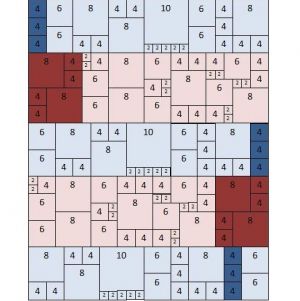
It is knitted from the center, according to the following pattern:
- from the starting loop make three double crochets;
- tie two chain stitches;
- then follow three more similar columns from the initial loop, two air loops;
- repeat this algorithm two more times;
- close the circle with a single crochet;
We knit the loops in a circle according to the pattern 4 times - 3 double crochets, 2 air loops, connect - the second row is knitted with the same groups of double crochets, three pieces each, from the air loops of the previous row;
Create the 2nd row, marking the corners of the motif - In the classic version of this pattern there are only four rows, but it is permissible to increase this number to five, six, seven, and so on.
We make blanks of different sizes from two, four, six, eight and ten rows
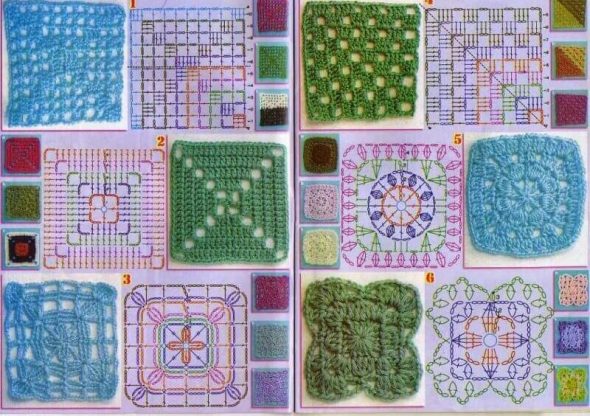
By moving the middle of the granny square to the edge, you can give this traditional pattern asymmetry and originality.
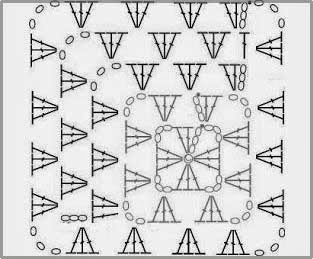
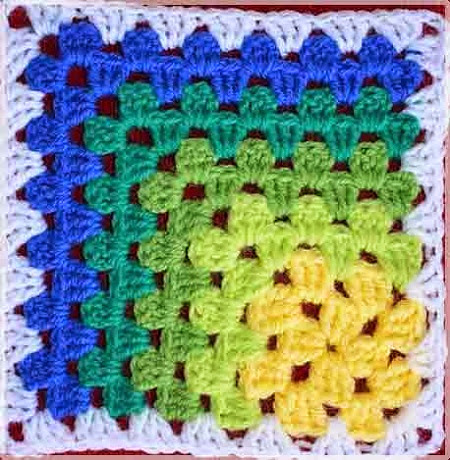
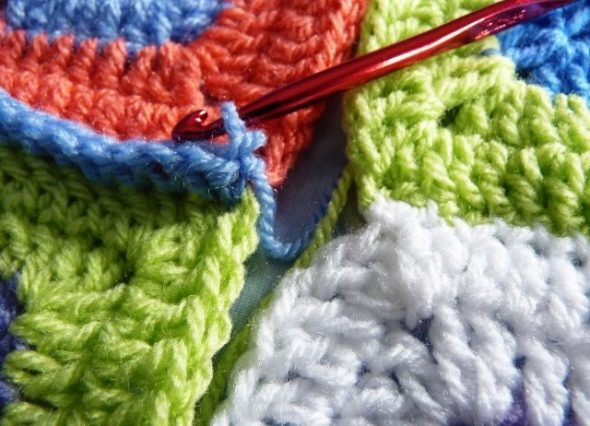
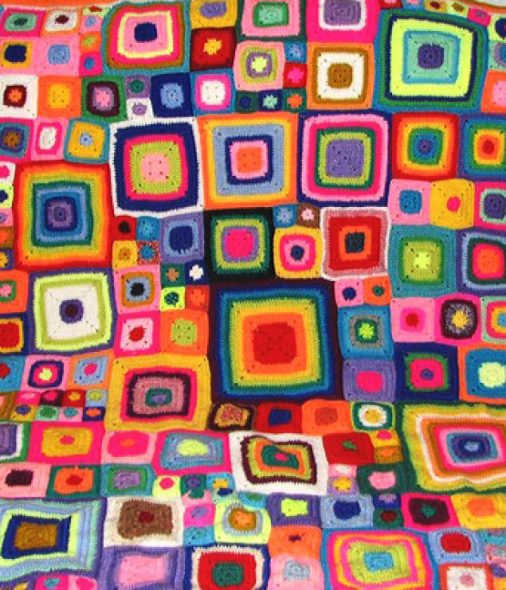
Simple and stylish pattern: blanket knitted in reverse rows
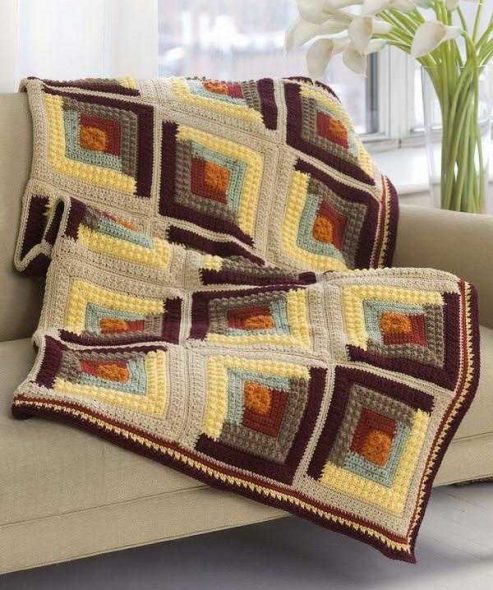
This technique starts with a regular "granny square" from the center. However, after the standard three or four rows in a circle, differences appear. Taking the bottom and left edges of the workpiece as a basis, form one row of single crochets, two with a crochet, and one more, the final one, without a crochet. Then repeat the same sequence of actions, starting from the top and right edges of the figure.
You can follow this pattern, changing colors periodically, until you are happy with the final dimensions of the product.
Patchwork baby blanket
The secret to creating a successful baby blanket is to choose the right elements.
- Pattern
Dense knitting varieties are well suited for such a product. Blankets with a raised pattern on the front side look good.
- Flowers
Children's things are usually made colorful and bright. However, do not forget that the shades of the blanket should be harmoniously combined with each other. Patchwork is a multi-colored style, but not tasteless.
- Yarns
When knitting things for small children, it is better to refrain from materials that can cause allergies. This means that cotton or synthetic yarn should be preferred to natural wool.
Another difference between these blankets is their size. Blankets for children are usually made smaller than those for adults.
Combined patchwork
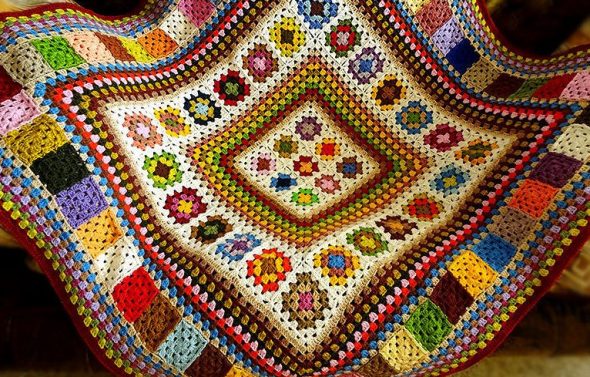
The specificity of patchwork allows combining not only yarn of different colors, but also different types of patterns. Knitted flowers can alternate with smooth hexagons consisting of double crochets. Complex openwork motifs work well together with simple patterns that contrast with them.
To create such a complex, unusual thing, combining disparate elements, start knitting by drawing a detailed sketch. Moreover, it should be detailed, well-developed. And you should not deviate from the original plan.
Don't be afraid to experiment! Try, fantasize, and, ultimately, you will be able to create a truly unique and beautiful patchwork blanket.

